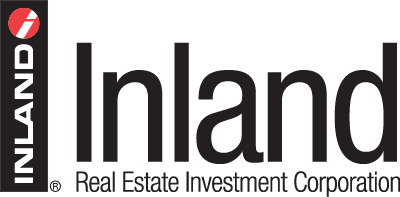
Evaluating fund fees and expenses is key to investment analysis and an important component of advisory services. Balancing the benefits and costs of every investment is integral to your fiduciary duty.
The need to understand benefits and costs extends to Delaware statutory trusts, or DSTs, the popular investment structure used by real estate investors seeking to defer gains through a 1031 exchange. First, it may be beneficial to revisit the costs associated with directly buying, owning, and selling any investment property.
The Costs of Owning Investment Property
Investors exploring a 1031 exchange via the DST structure may have experience with investment property. That is likely why they have gains they need to shelter! Investment property owners often look at their cash flows and gross returns to measure how well their investment performs. Yet, expenses related to managing investment property are also an important part of the performance equation. These expenses can include finding and replacing tenants, maintenance, repairs, insurance, paying taxes, and more, as well as unexpected costs like collecting delinquent rent.
For example, when buying or selling a property, an investor generally pays a commission to a realtor. In addition, they likely pay fees for loan applications, property inspections, title work, appraisals, legal opinions, permits, and closing documents, among other items. The substantial effort in finding the right investment property when buying or locating a buyer when selling can also prove to be a major cost in terms of time and effort.
Time, Money, or Both: Ingredients for Successful Property Investing
There are also explicit and implicit expenses related to managing investment property. For example, a real estate investor may pursue a DIY or “do it yourself” approach to save money. They may be hands-on with physical maintenance (from emergency repairs to major capital expenses), finding and replacing tenants, collecting rent, paying taxes, and more. But time is a major expense unto itself. Hiring a professional for this work can be a bargain for owners who have grown weary of DIY property management.
Similarity of DIY and DST Investment Expenses
The expenses above are common for investment real estate. They also help us understand the fees and expenses of DST programs for clients pursuing a 1031 exchange. Whether an investor is pursuing a 1031 exchange independently, or using a DST for simplicity and diversification, the costs of the process and property ownership are similar.
DST Fees and Expenses: The Basics
Real estate investing is a multi-year process requiring specialized talent and resources, as well as commitment and expenses over time. Cutting corners at any stage can prove to be more costly than any short-term savings. Investing and managing wisely for the entire life of your property helps not only to preserve value but also to enhance returns.
Multiple groups of professionals with diverse skills are prerequisites for a successful DST investment. These professionals perform a variety of services for the life of the DST, each with its own related costs, described below. These costs span the lifecycle of a DST, encompassing three phases:
- Acquisition
- Property holding and management
- Disposition
1. Acquisition Expenses: Seeking to “Buy Right”
First, a highly experienced team is required to create the DST.
|
Fund Formation Stage |
|
|
Service |
Expense |
|
Create the DST structure and secure capital |
Organizational & offering expenses |
As part of the fund launch process, the property acquisition and financing team secures institutional-quality real estate after a wide search and multi-step process.
|
Property Acquisition and Financing |
|
|
Service |
Expense |
|
Locate and acquire property |
Acquisition fees & expenses |
|
Obtain a mortgage |
Financing fees & expenses |
2. Holding Period Expenses: Seeking to Preserve and Enhance Value
Teams of professionals oversee the day-to-day operation of the DST and the property for the life of the fund, diligently maintaining the property to preserve and enhance its value, and making sure that taxes and accounting, legal filings, and investor distributions, if any, are done on a timely basis.
|
Holding Period |
|
|
Service |
Expense |
|
Oversee the trust, financial matters, and investor relations |
Asset management fees |
|
On-site, hands-on property management |
Property management fees |
3. Disposition Expenses: Seeking to Optimize Results
At the conclusion of the investment period, the disposition team applies its specialized skills to harvest the value of the property and assists with negotiating a property sale on behalf of the investors.
|
Property Sale |
|
|
Service |
Expense |
|
Sell a property and harvest returns |
Disposition fees & expenses |
Note that this discussion is only a high-level introduction, and the fees associated with DSTs may vary by program and by property. Investors and their financial professionals must study a DST offering memorandum in detail to fully understand the fees and expenses involved.
DST Fees and Expenses: The Details
Your due diligence process includes a thoughtful and detailed review of the expenses associated with many types of investments. While the expense language in a DST private placement memorandum (PPM) or offering document can appear complex, the basic concepts are straightforward. We review the most common categories of DST expenses below.
Organizational and Offering Expenses
It is important to consider that RIA clients receive a discount on internal costs, since selling commissions do not apply.
- Waived for RIA clients: Sales commissions
- Waived for RIA clients: Dealer fees
- Placement agent fee
- Organizational & offering expenses
DSTs are frequently structured with built-in sales commissions and broker-dealer fees. As a fee-based investment advisor, your clients don’t incur those costs. Instead, these costs are credited back as additional value in the form of interests in the investment. Some internal fees at this stage will include a placement agent fee as well as certain organizational and offering expenses. Depending upon the distributor or placement agent for the investment offering, their fee can range from 1 - 3% of the investment. This is not an uncommon expense and is considered an internal cost as a part of overall offering expenses.
Acquisition Fees and Expenses
DST sponsors may employ an acquisition team with real estate, legal, accounting, due diligence, and technical professionals that travel the country searching for and analyzing acquisition candidates. Common DST acquisition fees may range between 2% to 4.5% of the investment. This is approximately 1% to 2% of the total offering amount depending upon the amount of mortgage financing utilized within the DST. The DST may also reimburse the due diligence and acquisitions costs of the sponsor.
Reserves
You may also find initial lender and trust reserves included as part of the capital budget when acquiring a property for a DST. However, these reserves are not a fee. They are set aside in advance for specified or potential property repairs or improvements, since DSTs are not permitted to raise additional capital after completing an offering:
Financing Fees and Expenses
Some DST properties are purchased for all cash while others are purchased with mortgage financing. Leverage is a tool to minimize capital outlay with the residual effect of enhancing returns, although leverage must be utilized prudently to avoid undue risk. RIAs should carefully review any real estate financing terms.
Financing fees may be assessed for loan origination services, and may be payable to the lender, a DST sponsor, or a third party. As an example, financing fees can range from .25% to 2.0% of mortgage value. Additional financing expenses may include title insurance, legal, recording costs, mortgage taxes, escrow, property reports, and document preparation, among others. Of course, mortgages are also subject to interest, potential prepayment fees, and other costs.
Asset Management Fees
The successful operation of a DST requires a variety of professional services for the life of the trust. The DST sponsor (or an affiliate) generally serves as asset manager to supervise or provide these services, which may include:
- Supervise consultants, attorneys, auditors, and other professionals
- Accounting and bookkeeping
- Investor relations and communications
- Prepare and process investor distributions
An asset management fee and the reimbursement of out-of-pocket expenses may apply to these services. The asset management fee is often a fixed monthly charge.
Property Management Fees
For institutional real estate, onsite professional staff is key to maintaining a property and optimizing long-term value. The property manager typically maintains the structure and grounds of a property, collects rent, manages budgets, pays expenses, oversees tenant relations, secures new tenants as needed, and manages employees. For their efforts, the property manager receives fees (which can range from as 3% to 5% of gross monthly property income, and typically need to be commensurate with market rates for the property type in a given geographic area) and potentially expense reimbursements:
Disposition Fees
Imagine that you and your client selected a DST after thorough research and due diligence. Your client implemented a 1031 exchange with your assistance, selling an older property and reinvesting in new property via a DST. Over years, the property or properties in the DST benefited from professional management and enjoyed appreciation – and now the time has come to sell.
A DST sponsor should employ a professional team with expertise in maximizing property sales opportunities. Disposition fees may be payable to the sponsor at the sale of the property and can scale up to 3% of the gross sales price. If a commercial real estate broker assists with the transaction, the maximum disposition fee may be 4%. However, it is important to understand the terms of these disposition fees and to ensure they are aligned with property performance.
Next Steps
As a fiduciary, helping your clients understand the risks and benefits of their investments is a responsibility you take seriously, and it’s important that you and your clients also understand the expenses associated with a DST investment. The range of fees can vary from sponsor to sponsor, as can the language used to describe the fees. We hope this discussion has helped clarify the different cost categories applicable to DSTs, so you can help educate your clients in language they can readily understand.
Connect with Inland Advisor Solutions here if you would like to learn more about DSTs or other private real estate investment solutions.




